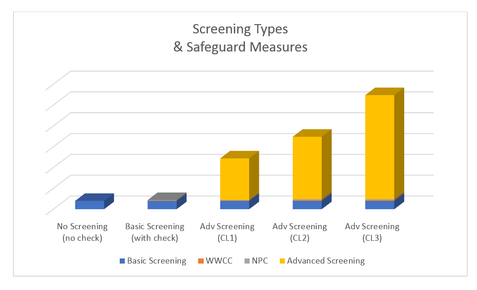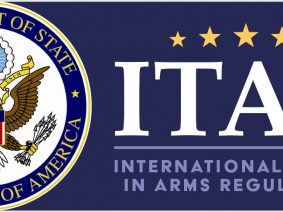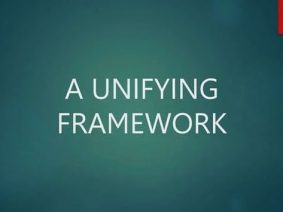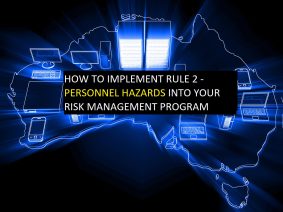The research is in: Criminal History Checks are Futile.
A Response to the “Scoping Review: Evaluations of Pre-employment Screening Practices.” by the University of Melbourne.
Summary: Basic Screening practices which include basic referee checks and “black mark” database checks are futile. Enhanced Screening must now be the new normal.
Research: The effectiveness of criminal background checks, as perceived by those involved in recruiting people was explored in Davis & Wells (1994–1995) and Hanly (2010). It was found that criminal background checks were an important component of pre-employment screening practices, but Respondents expressed reservations concerning the limited effectiveness.
Cleard.life Response: A national criminal history check provides a very low level of safeguarding. In other words, the Police Check (NPC) and/or the Working with Children Check (WWCC) cannot not be depended upon to provide a high level of safeguard assurances for organisations.
Research: The low conviction rate [all convictions 1:20, sexual/aggressive nature subset 1:1552] affects the effectiveness and feasibility of pre-employment screening practices (see, for example, Beyer, Higgins, & Bromfield, 2005; Department of Health and Human Services, 1985; Moriarty, 1990; Williams, 1991).
Cleard.life Response: In other words, these checks are infantile at best, ill-conceived at worst in their ability to achieve their own goals.
Research: Research highlights the futility of conducting pre-employment screening for criminal background information when no such information exists.
Cleard.life Response: In order words, just because a person has not (yet) been caught by Police and convicted does not meant they are suitable to work in your organisation.
Research: The most commonly stated concerns relate to the feasibility of criminal background checks in terms of associated costs, and time delays in the recruitment process due to the time needed to complete a criminal background check and the resulting decision to employ a person before the check is complete. The Australian Productivity Commission (2010) highlighted that such costs and time delays in the recruitment process were especially a problem for not-for-profit organisations that are heavily reliant on volunteers.
Cleard.life Response: The Productivity Commission Report in 2010 noted that “The cost of police checks across jurisdictions ranges from $5 to $52 per volunteer. … For NFPs with limited resources this cost can be substantial and even prohibitive.”2
The context in this situation is the business model some organisations use (ie. who pays for the check) eg. A volunteer may need to obtain and administer their own check and that is where some are time rich but income poor.
In 2018, surprisingly, some election campaign policies are being run on this ticket: that the Government will take care of these fees … to encourage more volunteer participation. Although popular and potentially a vote winner, the supposedly ‘high’ price associated with the process may also simply confirm the researcher’s conclusion: that the public considers the VALUE proposition of the check is approaching zero.
Taken from another angle (and fast forward eight years from the Productivity Commission report) we believe that these types of checks are cheap & fast. A nationwide NPC result, 80% which are delivered in a matter of minutes, for $42, is a great technological advancement and the productivity impact has been great. We applaud those in the industry who pioneered this initiative (in particular https://secure.prm.net.au/)
However, cheap and fast checks produce the same result which the Research has been showing: ie. they are providing a low level of safeguarding and we believe a false sense of security.
Research: Another concern was that Candidates were unknowingly hired by organisations after a criminal background check was run against a nickname, pseudonym or changed name which resulted in no ‘hits’.
Cleard.life Response: So, an easy-to-get-around, cheap and fast check is now inaccurate and therefore has an inherently an even lower level of safeguarding than first imagined.
Research: Another factor frequently identified by researchers was the risk that an applicant may have committed relevant offences in other jurisdictions, thus highlighting the necessity of criminal background checks in other jurisdictions (international or interstate jurisdictions, for example) and legal frameworks to enable this.
Cleard.life Response: In other words, an inaccurate, cheap, fast check that only checks databases in Australia, produces a low level of safeguarding. In Australia, 1:6 WWCC Clearance Holders have a criminal history. We know that the WWCC system deliberately and intentionally scans the a very small fraction of all “black mark” convictions. Here is an example list. Given this evidence (all else being equal), it could be argued that a WWCC produces a LOWER level of safeguarding than a regular NPC.
Research: The research reported that organisations that only conducted ‘basic screening’ (including personal interviews, reference checks with past employers and confirmation of educational status) were almost equally as likely to identify unsuitable applicants and have valid reports of child abuse as organisations that conducted ‘basic screening’ plus criminal background checks.
Cleard.life Response: So even though we now have national, cheap checks, research is saying that it ADDS VERY LITTLE VALUE, if any at all. However, it is often-times a legislative requirement, therefore it must be done. This however can leave the public AND the people who conduct the basic screening process + check with a false sense of satisfaction. Why? Because the damage and pain that has happened under the ‘basic screening’ methodology has been and may continue to be horrendous.
Research: The Research shows that many concerns were raised regarding factors that limit the feasibility and/or effectiveness of criminal background checks as a safeguard measure. Even court decisions reflected that, when no criminal background or soft information (Basic Screening of Referees) exists regarding an individual’s suitability to work, pre-employment screening practices are futile.
Cleard.life Response: Futile is a strong, deliberate, conclusive word by Courts and Academic Researchers. Imagine saying those words out loud “A Police Check is Futile”, “A WWCC is futile”, “Basic Referee Checks are Futile. “Even if we do all three, the process is futile.”
Research: Although thorough reference checks were one of the pre-employment screening practices most commonly identified as being necessary, many people also admitted their reluctance to share soft information with other prospective employers.
Cleard.life Response: The personal and confidential nature of soft information needs to be handled on a need-to-know basis. A distinct advantage of utilising an independent vetting agency to conduct referee interviews is that any disclosure of adverse information remains with the Vetting Agency and is never disclosed to the Employer. Sources are always protected and never disclosed, and no-one knows how much information and collaboration has occurred, except the Vetting Agency. Therefore, the Referee is able to fully disclose what they know or what they have seen without fear of retribution, defamation or lawsuit. Why? Because they are just one part of the puzzle. Furthermore, the adverse information is provided to the most important person in the process: the one who will be making a whole-of-person character assessment of the Candidate. The Vetting Officer uses their skill and experience to handle the adverse information and can steer the interview in a direction that allows for the topic to be raised and discussed with the Candidate. They are trained to detect lies and deception from Referees too. However, during the interview with the Candidate, if there are not full and frank responses forthcoming, the Vetting Officer is trained to detect resistance, deflection, obfuscation, deception, untruths, lies. Remember, the Vetting Officer’s main objective is to assess character: specifically, the Candidate’s Honesty, Trustworthiness, Tolerance, Maturity, Loyalty and Resilience (HTTMLR). If there are degrees of dishonesty during the Interview, it will be reflected in the Result. Remember the Sponsor never sees the transcript, or contemporaneous notes, nor the analysis underpinning and linking the fact pattern to the Adjudicative Guidelines. The Sponsor only sees the end Recommendation and the HTTMLR Index of risk. The material is deidentified and/or masked after the fact so the risk of damage due to any data breach or leak or hacking is virtually non-existent.
Research: Referees’ reluctance to share their concerns about a persons’ suitability to work reflects an underlying issue. Referees’ reluctance is central to the feasibility and effectiveness of screening for criminal conviction information and aiming to identify sources of soft information.
Cleard.life Response: This level of reluctance, which is ‘central’ to the feasibility and effectiveness of the process, is often-times caused due to the conflicted nature of the Referee’s relationship with the Candidate. In these situations, we prefer to use un-nominated Referees (or in the vetting industry called ‘Developed Referees’) because they (by definition) were not nominated by the Candidate. Developed Referee disclosures tend to hold a lot of veracity. They have less bias, less conflict of interest, less risk, more objectivity and more willing to talk as an independent third party. With all our Assessments, we offer a “Referee Addon” option.
Research: In summary, the literature available provides many insights into the need for comprehensive preemployment screening practices, which include criminal background checks as well as other preemployment screening approaches, such as those that aim to identify soft information.
Cleard.life Response: This is exactly our sweet spot. We would welcome to discuss your organisation’s situation.
Research: Furthermore, there is a need for clear legislation permitting employment prohibitions based on the outcomes of pre-employment screening practices. However, many legitimate concerns were raised in relation to such pre-employment screening practices, such as, the costs and time delays associated with criminal background checks, or the risk that an applicant will take measures to conceal their identity and history.
Cleard.life Response: Our Vetting Agency offers a PRIVATE simplex Recommendation which aims to make hiring determinations better than ever before. The costs are very manageable. Time delays are virtually non-existent. Risks of concealment are dramatically reduced. We would welcome a discussion with your organisation about your situation to see if we cannot partner with you to enhance the protection of people under your care and the reputation that goes with it.
Research: Consideration must be given to potential infringements on an individual’s right to privacy, rehabilitation and employment, both before implementation and during the subsequent monitoring, evaluation and revision of such practices.
Cleard.life Response: Using our Statutory Declaration, which also includes a general consent relating to gathering sources for the suitability assessment, manages to balance the right to privacy as well as trustworthy assessment. The Statutory Declaration also states that the Result will never be disclosed to the Candidate and only forms ONE part of the HR process. However, consideration must be given about implementing this screening check for permanent full-time staff, where an adverse Recommendation is given.
————————————————————-
Scoping Review: Evaluations of preemployment screening practices for child-related work that aim to prevent child sexual abuse. Parenting Research Centre and the University of Melbourne. Commissioned by Royal Commission into Institutional Responses to Child Sexual Abuse
Source 1: https://www.parentingrc.org.au/publications/review-of-pre-employment-screening-practices-to-prevent-child-sexual-abuse/
Source 2: https://www.pc.gov.au/inquiries/completed/not-for-profit/report/not-for-profit-report.pdf (page 256)
__________________________________________________________________
More articles that maybe of interest:






